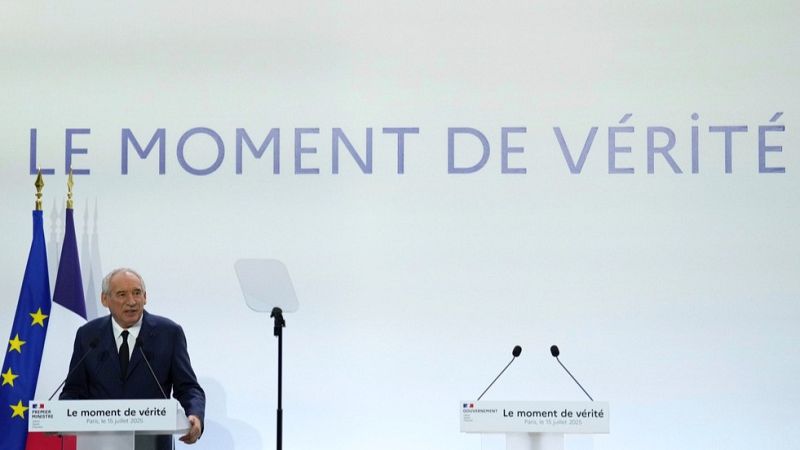Vote of confidence and calls for blockades: a turbulent week ahead in France

The future of French Prime Minister François Bayrou is hanging by a thread Monday 8 September, with a vote of confidence that, on paper, looks highly unfavourable.
As the vote needs an absolute majority, it only takes more than half of those voting to reject the confidence motion to bring down the Prime Minister and his government.
The vote requires an absolute majority of those casting ballots, meaning more than half would need to reject the government for the Prime Minister and his ministers to fall.
Almost all political forces have indicated they will oppose the motion, from the far-right Rassemblement National (RN) to the radical left La France Insoumise (LFI), as well as the left-wing Parti Socialiste (PS). On the conservative side, Les Républicains (LR) MPs will have “the freedom to vote,” group leader Laurent Vauquiez announced on Sunday.
Should the government collapse, President Emmanuel Macron would face three options: appoint a new prime minister, form a provisional government, or dissolve the National Assembly once again. None of these choices appears ideal for the president, who has faced persistent political instability since the start of his second term.
Call for the country to come to a standstill on Wednesday
Two days after the vote of confidence, France could experience a day of gridlock. A call to "block everything on 10 September" appeared on social networks, although it was not clear who was behind it.
What initially resembled the "Gillets jaunes" movement now also includes activists from political parties like LFI and trade unions like the CGT. But it remains difficult to predict the range of actions that will be carried out on Wednesday. In addition to strikes (transport, civil service, national education, hospitals, shops, refuse collectors) and demonstrations, a credit card strike, blockades of strategic sites and sabotage of speed cameras or cash machines have been mooted.
Authorities estimates that up to 100,000 people could take part. Interior Minister Bruno Retailleau, however, says he does not fear "a large-scale movement".
Today

